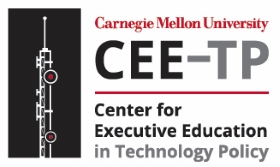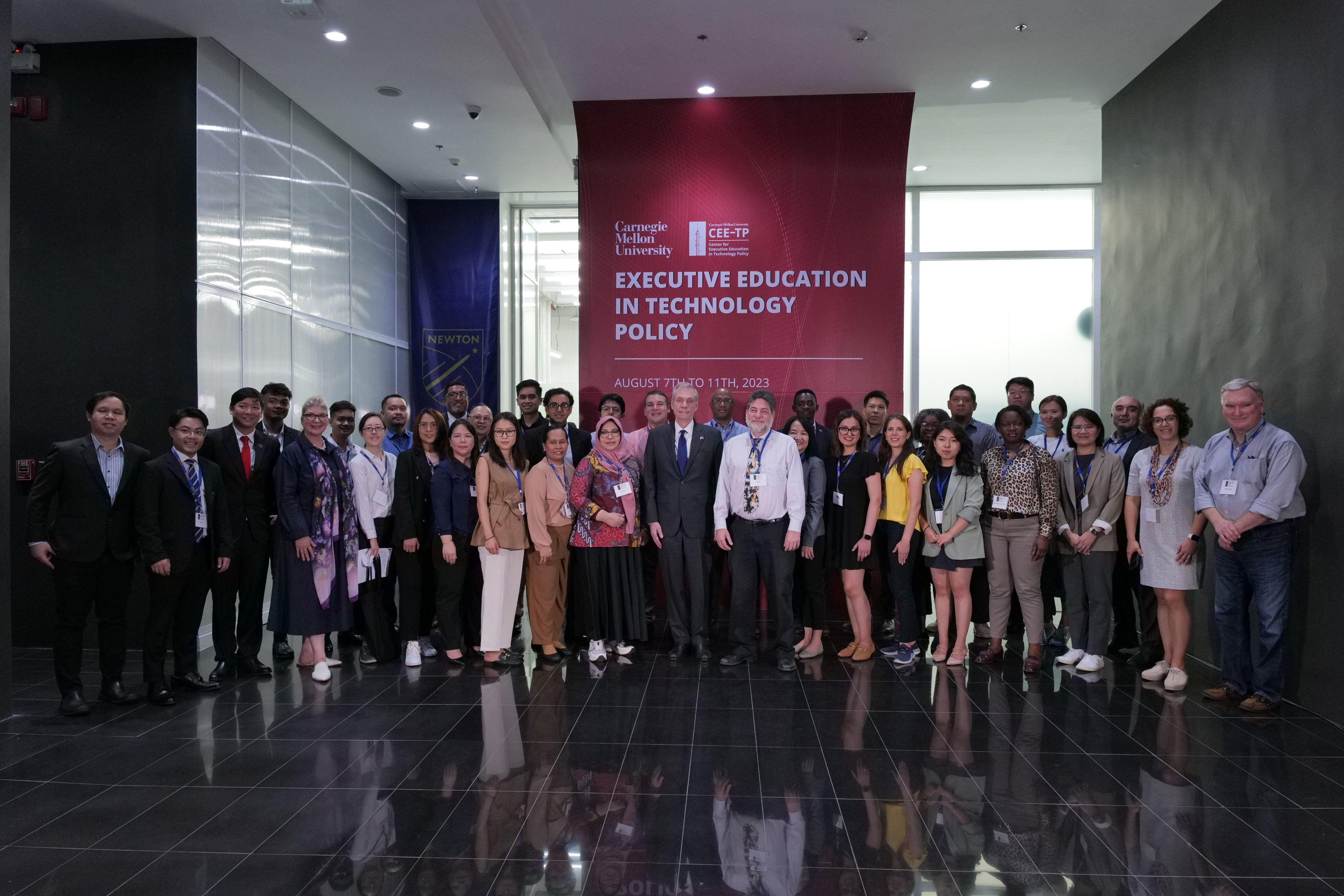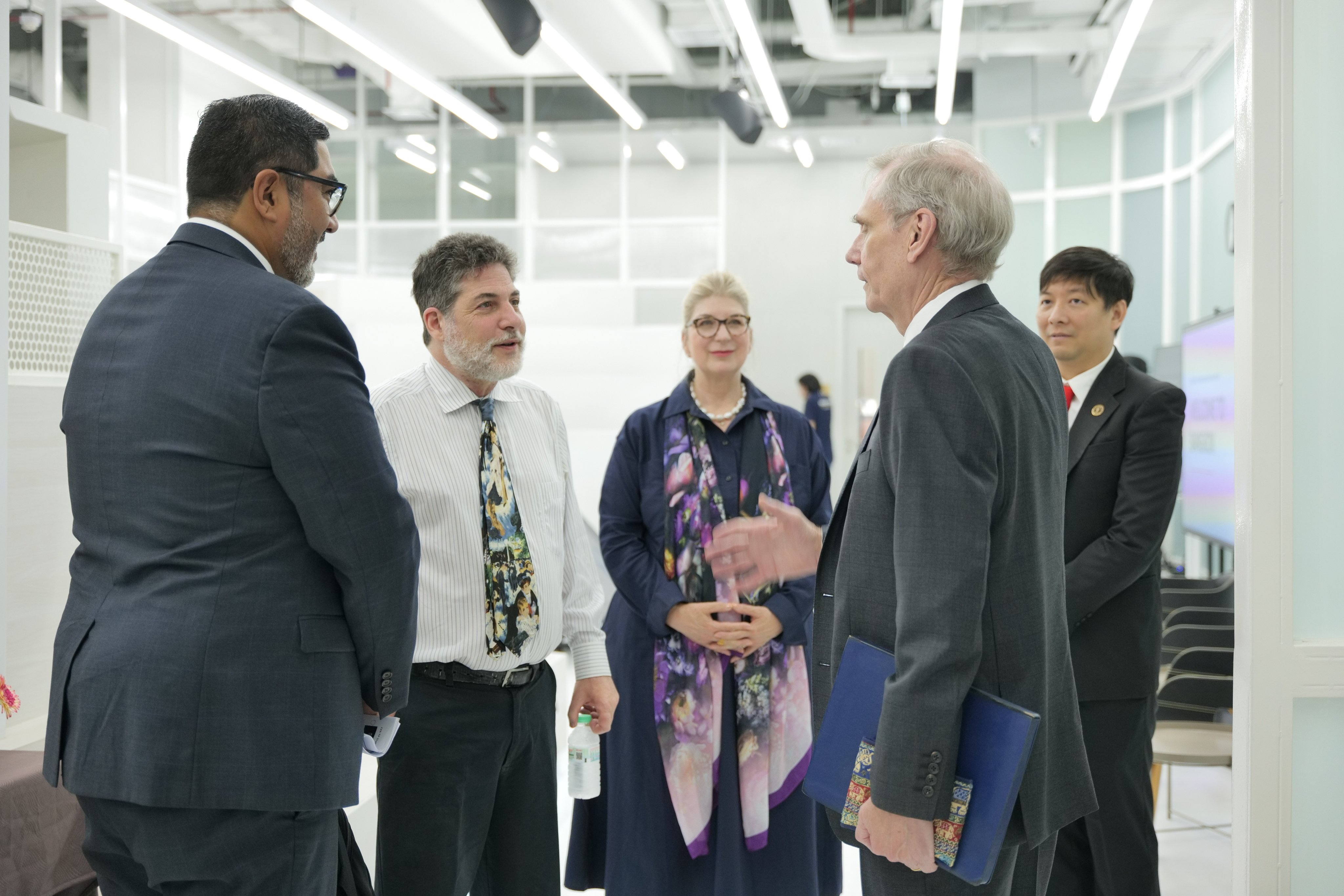ICT Executive Education in Bangkok, Thailand
The Center for Executive Education in Technology Policy (CEE-TP) spent the beginning of August in Bangkok, Thailand for a week of classes, networking events, and academic tours that aimed to help participants make informed decisions about policy issues surrounding two technologies of growing importance: artificial intelligence and cryptocurrencies.
The US Ambassador to Thailand, Robert F. Godec, gave the opening lecture to the program. He stressed that the world, and not just the United States, should "establish a strong international framework to govern the development and use of AI." He called on participants in CEE-TP classes to engage, saying that "all of you here, together with University partners and other partners, ... can work together, and share a commitment to responsible development and deployment of these technologies."
The first class of the week was AI Governance, Safety, and Risk Assessment for Policy Makers, led by Pam Dixon, Founder & Executive Director of World Privacy Forum, and co-chair of the United Nations Statistics Data Governance Committee. The class helped participants understand existing AI laws, frameworks, and standards, how rapidly evolving AI policy norms fit into existing structures and policies, and how in very practical terms they can shift policy thinking to adapt to the requirements of AI frameworks. The goal of the class was to help participants make decisions about policies and practices around AI risks, framing, and mitigations.
The second class of the week had participants focus on modern cryptocurrencies. The class, Basics of Cryptocurrencies, Blockchains, and Applications, led by Nicolas Christin, Professor at Carnegie Mellon University, jointly in Dept. of Engineering and Public Policy and in Computer Science, aimed to help participants make informed decisions about cryptocurrency design, implementation, and use.
There were 32 participants in the summer 2023 Bangkok cohort representing 13 different countries. The program was made more enriching by the diverse and influential people who contributed to the program. A roundtable discussion focused on The Intersection of AI, Policy, and Business Innovation included leaders from Thailand in industry, academia, and government, as well as faculty from CMU and CMKL universities, and instructors from CEE-TP. The goal of the roundtable was to discuss the importance of continued collaboration between business, policy, and academia to foster AI innovation while ensuring ethical practices and good governance.
The program also featured guest speakers, Dr. Chaichana Mitrpant, Director of the Electronic Transactions Development Agency (ETDA) and President of CMKL University, Supan Tungjitkusolmun. Our students were able to participate in lab tours and learn about research highlights from our partner, CMKL University, and from Newton Tech, who graciously hosted our students in their classrooms and contributed as both participants and hosts. CMKL University is a collaboration between Carnegie Mellon University and King Mongkut's Institute of Technology Ladkrabang (KMITL). By applying Carnegie Mellon’s globally acclaimed research and education programs within a regional context, CMKL tackles challenges that will drive the future development of Thailand and the ASEAN community.

Our Bangkok program is our final in-person program for 2023 as we focus on a wide range of virtual classes for the remainder of the year. If you are interested in hearing more about CEE-TP, subscribe to our newsletter, or if you are from a developing country and wish to hear more about our classes, please sign-up here.
We gratefully acknowledge support from the U.S. State Department whose funding supports scholarships for learners around the world.


